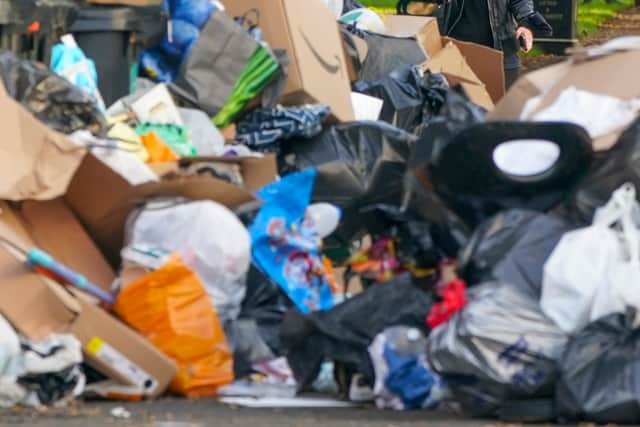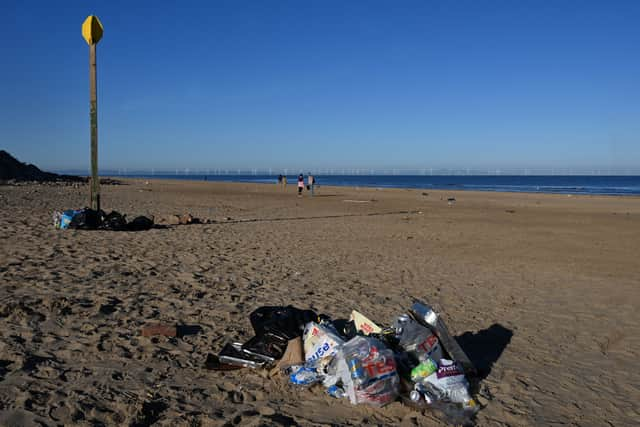Liverpool residents not satisfied with cleanliness of city despite £8.5m bill
and live on Freeview channel 276
Less than half of the city is satisfied with the cleanliness in Liverpool a council survey has found.
Despite Liverpool Council spending £8.5 million a year on street cleaning and a further £800,000 clearing fly-tipping, its own survey found just 43% of people in the city think it is clean. The findings of the survey are to be debated by members of the council’s neighbourhoods committee next week.


Advertisement
Hide AdAdvertisement
Hide AdThe report said the local authority has ultimate responsibility for cleaning public spaces it owns, including roads, pavements, alleyways, parks and greenspaces. The services provided include litter picking, litter bin emptying, mechanical sweeping, street washing, weed, leaf, graffiti, fly posting and fly tipping removal.
On average, Liverpool Council receives approximately 300-350 complaints a month about litter related issues and 80-90 about dog fouling. The findings of the survey on cleanliness standards placed Liverpool 25% below the national average of satisfaction, which stands at 68%.
In January, Keep Britain Tidy (KBT) completed an environmental quality survey to look at levels of litter, detritus, graffiti and fly posting across 300 sites and 10 categories of land use. The survey identified litter levels almost three times higher than the national benchmark average.
Following the formation of a partnership between KBT and Liverpool Council, a year-long programme of work has been established, the report said, “to tackle the blight affecting our communities, our neighbourhoods and our city and further monitoring and evaluation to ensure we are making the required improvements.” It added: “The council has been very clear; litter is a preventable blight on our city affecting everything from our streets and parks to our rivers and lakes.
Advertisement
Hide AdAdvertisement
Hide Ad“As well as having a negative impact on the appearance of the city and costing millions to clear up each year, it is also harmful to wildlife with everything from discarded cigarette butts to plastic bottles ending up in the sea.” Among the measures to be taken by the council within the partnership is increased enforcement.


The committee briefing said if positive engagement, explanation and education fails the council will use enforcements to hold to account those who drop litter, allow their dog to foul, fly tip and graffiti. Perpetrators would also be prosecuted, named and shamed where appropriate, it said.
“The use of extra enforcement officers deployed as appropriate will ensure the strongest action is taken against those that damage the look of our city and commit environmental crime. We will highlight the financial cost and burden fly tipping has on our city and how that financial burden can be better spent on essential services.”
A month-long public consultation was held in July on the introduction of a public space protection order across certain parts of the city, which would make it an offence if people do not dispose of their dog’s mess on the land the order applies to.